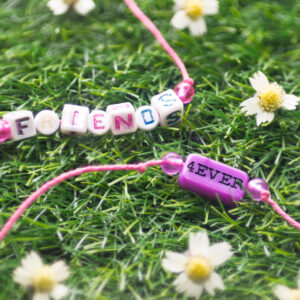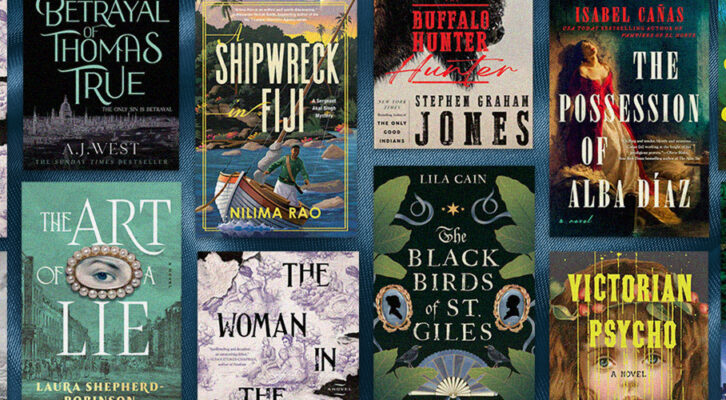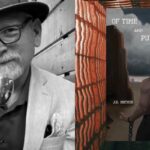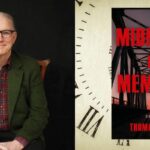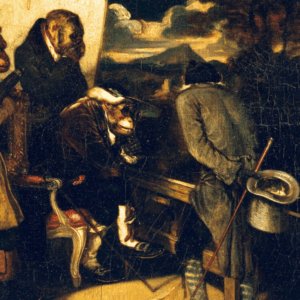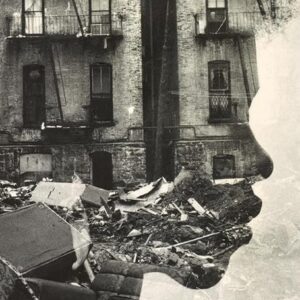
Knausgaard on Masculinity, Excrement, and Quitting
A Conversation with Karl, on the eve of Book Four
Every few years, if we’re lucky, a writer emerges and expands the idea of what a novel can do. In the last three decades there have been many such writers. In the 1980s it was Haruki Murakami and his hard-boiled fantasies of a post-traumatized Japan. In the early 1990s a dying Chilean living in Spain named Roberto Bolaño brought an electrifying vernacular to the short story. In the late 1990s W.G. Sebald breathed melancholic intelligence into the dreaming up of a post-war German guilt, and in the early 2000s a reclusive Italian writer with a ferocious wit named Elena Ferrante conjured a fictive world as rich as Jane Austen’s and ten times angrier. Here we are now, though, in the second decade of the 21st century and it is—and unequivocally will be—the decade of Karl Ove Knausgaard.
Begun when he was 39, feeling intimations of mortality and a crushing desire to “write something exceptional one day,” My Struggle is a colossus, a Proustian megabook of memory and family life; a poetic recall of the textures and terrors of childhood and boyhood; an unsparing glimpse into the mind of a man on the other side of that magical period in life, raising his own children; an exorcism of a terrifying and controlling father.
No other writer is like Karl Ove Knausgaard and from the first sentence of his book—“For the heart, life is simple: it beats for as long as it can. Then it stops.”—we know we are in the hands of a master. I talked to Knausgaard last fall in Vancouver. This is an edited version of that conversation.
John Freeman: Let’s jump ahead to book three. There’s a passage in there that goes, “Since everything happens for the first time in every generation, and since this generation had broken with the previous one, in our heads we were 1970s people and our feelings, those that swept through each and every one of us, living there on these Spring evenings, they were modern feelings but know their history than our own and for those of us who were children, that meant no history. Everything was happening for the first time.” And I know that Dag Solstad, who is a Norwegian writer as well, has written about this feeling of what it is like to be a modern Norwegian, a life that in all its wealth seems cut off from previous history, but I’ve never read this stated so baldly and I wondered how much this feeling influenced you to write these books, this desire to record what it means to be a modern Norwegian? Or do you not think about that in terms of these books.
Karl Ove Knausgaard: I have never thought of it that way. I never connected that thought to my writing. I have never thought that I was a modern writer. Never. What I’ve tried to do I think, if you just, you are so connected to the society no matter what, in a lot of ways, you don’t know it yourself. This is a very personal story about my personal life and if that’s the case some patterns will surface. Then the test is about relevance to what it is like to be alive now in these times. I’m not a thinker. I’m not a philosopher. These books are the opposite of thinking.
JF: What do you mean?
KOK: I mean that when I write, the problem I have is that I want to be clever in a way and I want to use the knowledge I have to construct something, but it’s kind of ordinary. My analysis of societies might be good for minutes, but it’s basically worthless.
JF: [You’re] selling these books, right?
KOK: When I was studying in my twenties and I tried to write… but I couldn’t write. Then I had a discovery when I was 26 or 27 that something was—I don’t know why it happened—but something was happening in my writing all of a sudden. It was like a breakthrough I had. I was just diving into it and something else came out of it, something I hadn’t seen before. I realized this is writing. You pour yourself in and you see something you haven’t seen before. It’s not yourself; it’s something else and that’s a combination of you, and before you, literature. You can’t think when you are doing that. You can’t calculate it. You can’t make it. It has to happen. But back to your question: if you do that, if you write blindly, if you do that for 3,600 pages, it’s a lot of blind places you know? It’s a lot of patterns. I think I’m interested in identity. I’m interested in personal identity, national identity. But if I try to analyze that, nothing happens.
JF: You’re inside it rather than outside it.
KOK: Yeah, and I can’t see it. But if you do it like this, maybe probably something will come to the surface that you can see. That’s my hope when I did it.
JF: The main character of these books happens to be named Karl Ove Knausgaard. He’s written the same books that you had before these books came out, grew up in the same town, born in the same year, is married to the same woman. You can keep going all the way down to his inseam. One of the major figures in this book is your father. What was he like?
KOK: As I said it is a book about identity and the thing is that my father is changing from book to book. He is one person in the first book when he was dying and completely another person in the third book when I was ten years old, looking at him. So he’s kind of changed through my life. When I was a kid he was very hard, very… what’s the word in English, authoritarian? Very chaotic. Very aggressive and unpredictable. That he was unpredictable is the key to that book. I was constantly trying to figure out in what mood he was to try to please him. It was like people with parents that have addictions. You try to make it ok for them and I did that when I was a kid. And I hated him. And I was very afraid of him. That was my childhood.
Then when I was 16 and he was 40—he separated from my mother and he started to drink and he changed personality. I think that was kind of a freedom project for him. He started to be social. He never had friends when I was growing up. He was a very solitary man. Then he started to drink and started to socialize. Then he became addicted and started to drink a lot. I’ve read his diaries and it’s really heartbreaking. He tried to stop drinking but he couldn’t. It’s like looking into an abyss. He can’t stop. He loses his job. Loses everything. Moves back to his mother and then I think he has given up. Then I think this is a kind of slow suicide. And he stays with her for two years drinking constantly and then he dies. That’s the first book: the death of my father. I hated him and I wanted him dead, I remember that part. I wished he could be dead. That’s a kind of thought that came back to my life and then I went down there with my brother; it’s a long story. They had a beautiful house, very bourgeois house. They were well off. The place where he grew up, when we came down there it was completely crushed. It looked like a junkie’s nest or something. There was blood and excrement and urine…
JF: He had broken his leg and not gone to the hospital.
KOK: Yeah. When we came down there I was just crying and we walked in the house, and I was crying, that is the first book, crying and cleaning. That was how it was. And I realized this was very strange for me because I thought I hated him, but I didn’t. There was something else going on and that was the starting point for the book. He was an enigma to me. Why did he do this? I mean, how did he end up like this? Because he was a respected man when I grew up. He was a teacher. And he was a very good teacher. After I had been publishing these books I got letters from his colleagues and from friends, and they said, you should know this: he was a brilliant man. He was a good man. He was doing his job. And they admired him. He was a devil at home but… I tried to figure out who he was for me. That’s the books. I go through my life and he’s the figure I’m relating to all the time. Then I became a father myself. Then I found myself screaming at my kids or being angry at my kids. I realized he must have been like me. He must have been a human being. He must have had the same feelings. I wanted to leave my family. I was so frustrated. Then I could identify with him in some ways and I could start to write about him.
JF: In the third book, Boyhood, there’s a real sense of chaos in the landscape and the house you describe, the sort of patterns and tics that you and your brother develop to signal to each other what your father’s mood is. Were you conscious of mapping that onto the book as you were writing it or is this one of those unconscious patterns that you describe that comes from writing without thinking.
KOK: A lot of the things in that book, yes, is happening unconsciously. There’re a lot of patterns in the book. What’s happened was I was writing about my father and me I had a kind of revelation. I hadn’t seen it before because I realized I was an annoying kid. I was annoying.
JF: You do spend a lot of time in this book crying.
KOK: Yeah, I did. I think that’s a dynamic I wasn’t aware of. I thought this was static. He was angry and I was a victim, but I was annoying. It wasn’t like he wanted me to be. That’s something I didn’t think of before and there’s a dynamic there and some of those scenes are like a dance: I’m doing this and then he’s reacting and I’m reacting and he’s reacting. All of sudden we are in an almost violent situation and I can understand how we ended up there.
JF: What fascinates you about boyhood?
KOK: In general?
JF: In general, yeah. You enter it so completely.
KOK: I think there’re two ways to answer that question. One is more specific about my boyhood. And that was the feeling of being almost in a prison when I was at home. We had very strict rules, a lot of things were forbidden. I was not allowed to make any food by myself. I didn’t cut bread, couldn’t do anything. I was not to use any tools whatsoever. Not to run outside of the house. Lot of rules. Then outside was complete freedom. You could do whatever you wanted. This was in the 70s. I mean it was a lot of gangs just running into the woods, bathing, no adults whatsoever. And those two elements are in the book and are my childhood. I’m just fascinated about it. But in general, I think childhood, boyhood is not a place where you reflect upon things, not a place where you think so much. It’s kind of a pure existence. At least I didn’t take in the world much more directly, and I can see that in my own kids now. If you have a day, a long summer day, I can see I’m just trying to get over with the day so I can sleep. And then another day you know? To manage things. They are just in it. And that feeling is almost like you could say, how animals are in the world, and sometimes I’ve been writing and I think, that’s the meaning of life. Being there.
JF: When you’re writing well, you almost get back to that stage of unmediated existence?
KOK: Yeah, if you write, you are selfless in a way.
JF: Even if you’re writing about yourself for 3,500 pages.
KOK: That’s a clue. You are selfless and you are very present. It’s an ironic situation for me because I am present and selfless in writing, which isn’t life. I’m not in life. I’m in writing. That’s my way of living.
JF: You bring up Proust in volume one and throughout the books. Obviously, Proust was obsessed with memory as you are, but I feel like there’s a difference with how you deal with memory than Proust does and I wondered if you could articulate that?
KOK: I think Proust was the reason for me being able to write my first book.
JF: You said you imbibed him.
KOK: I did. I read him when I was 25, he was then translated for the first time into Norwegian. I had never read anything like it. It was all that was going on that summer when I was reading it, the hunger for being in that world. Then I couldn’t write. Two years later I started to write my own novel and I didn’t think of Proust at all. I wrote around 700 pages. If I look at it now it is not Proust. It is like a rip off of him. His idea of memories or how to construct a novel or what a metaphor is, is taken from his book. So then I tried to do something very different from him. My Struggle is more like an anti-Proust book because his is so elegant and so sophisticated and he composed everything so well.
JF: It’s controlled.
KOK: It is very controlled but [My Struggle] is just rushed, just to get it down on the paper. I sometimes feel like I shouldn’t have done this because this is my life, this is the book. I spent two years on it. Maybe I should spend three more years on it and maybe a little bit more.
JF: I feel like Proust was building a cathedral and you’re digging a quarry. And you get down until the water starts coming up, and then it’s like, all right, I’m done.
KOK: It is and but I think the way I look upon memories or the past, it is just Proust I think. And it’s difficult to see because it’s so interwoven in our way of looking at memories.
JF: What was your madeleine? Was it the sort of Jesus-like mask you saw on your wall in Malmö, was that the sort of moment you started traveling back?
KOK: Yeah, it was. It was. But that was just a memory and it’s in the first book and there is maybe five pages, something, from childhood. The thing is if you consider your childhood you maybe have certain definitive memories, maybe ten or fifteen iconic memories, that you almost based your whole identity upon. If you write about them you know them too well, you know what it is and nothing is happening. You just make an inscription of something. What Proust is describing is the memory that is not something that’s ours, it’s outside of that, it’s outside of consciousness, just something that’s coming up. Everybody knows that feeling. If you hear a song on the radio and if you smell something you haven’t smelled, it’s back.
JF: It’s sensory based.
KOK: Yeah, and it’s back in the whole of you. You are there for five seconds. And it’s so good. It feels so good. Even if you have a terrible childhood it feels good. You are back and it’s terrible but it’s good.
JF: Are you skeptical memory narrative-izes itself. As people get older the story they say about themselves changes because they have to reincorporate new memories and tell a new story that fits with what they think they are or want to be.
KOK: It’s unavoidable. Memories aren’t lying and you can’t help it. You changed. Your childhood is changing through your life. I find that very interesting, that the past is changing. And it’s changing in a general way, too. The history is changing. The war looks different now then it did 20 years ago and it’s the same with your own childhood and there is no kind of “this is it, this is how it was” and if I look upon my own children I think maybe those five iconic moments for them would be when I was shaking them or screaming at them, that will define their view of their childhood. And I know a thousand days, a million hours, where nothing was going on, nothing was happening.
JF: We just discussed drawing back memories that had been lost or through the association of objects and places, but surely you’re also drawing out things that you knew, things you knew about your parents, your relationships, your brother. Did you think, oh my god I didn’t know that their marriage was going to fall apart before I knew it?
KOK: Some things I know that I thought before… one thing, it was a strange thing: I started to drink when I was 16. I was living with my father and it was only the two of us and he was starting to drink. He didn’t drink before. And we lived separate lives. I was drinking, he was drinking. Sometimes I would come upon him—you know you can do that if they don’t hear you—and you come in and you see their private space where they are alone. One of those spaces and there was my father sitting, listening to music, crying.
JF: He’s crying.
KOK: I never saw my father crying. At that time I didn’t know why. Now I can understand. Now I’m his age and I can understand what was going on in him and he was in love and he had a relationship to a woman and he started to drink and his life was changing. It must have been very good for him and very hard of course. And I saw that and couldn’t relate to it and I was drinking, too. And I was in love, too. And we didn’t relate to that. He wasn’t interested in my being in love and I wasn’t interested in him being in love. I don’t think we recognized it. When I was writing about it I saw it, ok, this is what was happening: we were in love. We were drinking. We were in the same house.
JF: Masculinity seems a constant refrain throughout these books, the concern. In volume one it’s how you dealt with your father, which you describe. In volume two, how you operate as a father yourself, how you look at women even after your children are recently born, judge yourself, then think, how can I not do this? I’m a physical person, I’m an animal. And in volume three it’s felt again strongly in relation to your father and we watch you across these books—we only have three now in English—we watch you learn it as a way of being and it made me wonder if masculinity for you is a mask or is it part of your essence?
KOK: This was a major thing in my life and it is in the books and it starts with a man. I got a lot of criticism, especially in Sweden, because of this, because you’re not supposed to… the masculine values are not worth anything and there shouldn’t be any sexism at all. It is the same, you know. So that’s a provocation to write about masculinity and this man in this book feels like it’s very feminine to go with a pram and take care of a baby, like you’re losing your masculinity, and I was writing about that and I felt feminized when I got my daughter and had to take care of her. Then in book three, it is a very feminine little boy. He’s crying all the time and he’s interested in clothes and he’s interested in all the things you should not be interested in. This is the 70s and there were very specific rules of how we should behave as a boy. Certain codes. You couldn’t break those codes. And you shouldn’t cry. You shouldn’t be a coward. You should fight. It’s the same as the Icelandic sagas from the Vikings. All those rules. Then when I was 13 they started to call me… in Norwegian it’s kvinnelig, which is feminine. It was the worst thing you could say to a boy at that age. It was really the worst. And it was absolutely terrible but it was true. I was feminine, I have to admit it. But it was such a crisis for me coming into puberty, becoming a man. That is what I fought in my teenage years. I tried to be masculine. I tried to be a man. And I have been doing that since.
JF: You’re doing a good job.
KOK: Then what is feminine/masculine? What is this thing?
JF: We both have our legs crossed. Would that be bad in Norway?
KOK: When you’re writing for instance, what is it to be feminine or masculine? What is it? It’s basically a physical thing, physical presence when it’s like that, but in writing, and in life, it’s very different and I’m very interested in that. This has something to do with identity again and a very important thing. I’m just trying to explore what it is, what it means and if it is a mask, what’s behind the mask? I’m saying something in the book I could have never have written when I was 20, because it’s very shameful for me. It’s in the book. Sometimes when I’m falling asleep almost like you’re having a dream and I am a girl or I am a woman and I know I am and then it’s over. I wake up or something and… what’s that? What is this? For me, being called all these things, having this is like, this is the worst thing, this is the worst threat. It’s interesting, but for a writer this is interesting material. It has to do with what is this? What is this to be a man?
JF: It’s like your Orlando moment.
KOK: It could be. It is interesting because it’s such a basic thing. Your sex is a basic thing. You base your life on it. And the role of being a father has been changing, from just one generation, a totally different way of being a father. And the idea of being a man is different. What’s going on? What’s going on? That’s what I’m trying to write about.
JF: Okay, we’ll go to mantown now. Volume three has a lot in it about taking a crap.
KOK: Yeah.
JF: I could go worse, but you describe as a boy enjoying the feeling of pooping and how you would hold it for a long time and sit on a tree to see how long they could get. You’ve also written a twenty-page essay about shitting in a book about essays. And I wondered, John Updike, our North American King of pooping, once wrote that writers are like snails, they sort of excrete their way into the future and leave behind the writing, which is what’s left. Is it for you an interest in the sort of creation and kind of metaphor for artistic creation or is it something more animal than that?
KOK: I don’t think in metaphors, no. It is a frightening thought, now that I think about… that’s not the reason why I wrote about it. What I wanted to do was capture a childhood. A child is, if you measure from all points of view, an idiot. He knows nothing really about life. Knows nothing about facts. So how can you describe this life? How is the world looking for an eight year old, a ten year old? This is very problematic to write about. Then I realized there are a lot of topics but just unworthy topics. There are a lot of reflections but upon worthless things and you have kind of a knowledge of things. A big knowledge of things, but it’s usually unworthy things. Shitting is one of those things. But also we’re present and we’re curious and it’s body-related, which you are much more when you are a kid. It’s a perfect thing to enter childhood through there because I started to remember how it was. And it kind of opened up the whole childhood for me.
JF: Do you still think about—I’m not going to belabor this—but…
KOK: One more thing, which is a pleasure for a writer if you can write something very specific and detailed about something people don’t normally write about, that’s always good. Changing diapers, for instance, that’s a good topic to write about.
JF: One last question, then we can move on from shit. There’s an American comic who once looked out at his audience of well-dressed people, out for a night on the town, and said something along the lines of, you all take painful shits at some point. When you are out in the world and not an author on stage like now, do you still think in those terms or do you think of this particular concern about pooping as primarily a literary entry point? Or do you think, why don’t we actually talk about this? Why is this taboo? Why is this foreign?
KOK: The essay you mention is about that. This really is a matter of the last space of privacy. It’s the last thing you can’t talk about. And that was so fun to write about. Writing about shit and I use Hannah Arendt and I use philosophers and I kind of make it into something. That’s a matter of something and it makes sense and it is basically true but it’s still something you shouldn’t mention. You shouldn’t go there. It is unworthy and that makes it interesting. It still is a taboo. Of course it is. I am personally very shy. I personally do not want to expose myself and I do not want to do these things privately, and I’m very, what’s the word in English, everything that is… fear of intimacy in almost all senses you can think of.
JF: So I shouldn’t have hugged you when I met you?
KOK: For instance, that’s what makes this project such a freedom project for me because almost everything I do is really out of character and it’s forbidden. But if you do it by yourself, in literature when you are completely free, completely alone, it is possible to do it. If you stop to think someone is going to read it, this is going to be published, then you can’t do it. When I was writing this I was alone most of the day. I was doing all these things that I couldn’t say to anyone. I was completely free and it was terrible, but it was also a joy doing it. Then the book came out, then this thing starts, and then I’m exposed to very many people but it still feels like it is very much literature for me. Still, I am shy. Still, I don’t talk about these things. With the exception of occasions like this.
JF: One thing that I think is not talked about often enough with these books is that they’re very funny. They’re very funny. At one point, I think it’s in book two, your editor calls to ask what you’re up to, to which you reply I’m working on my self-esteem, which is probably what every writer says when their editor calls. How important to you is humor in finding meaning either in literary terms or in personal ones?
KOK: My favorite book of all times is Céline’s Death on the Installment Plan because I laughed, I was on the floor laughing with that book. I love it. That’s very important, but it has to be, that humor is so dark you wouldn’t believe it. But it’s still extremely funny. I’m well known for being very, very serious. Very un-ironic. Very… I mean I have been crying on Norwegian TV. That’s the image of me being that kind of figure, but in my writing I can write things I find very funny, and some people don’t understand that I’m trying to be funny. They just don’t believe that I could be able to make a joke even. And I think the books are read like that.
JF: Your wife Linda Boström Knausgaard has published two novels recently that have been extremely well received in Scandinavia. She’s written these two books after the events as described in volume six of My Struggle. What’s it like? You’ve had this extremely public life, so public that it actually filtered back into the book. To now have a house full of very prominent writers? Does the selfless ego thing perpetuate itself at home or do you ever worry that to some degree, just as your father dying was the door that allowed you to walk through and write these books, that your finishing these books was the door that allowed her to walk through and achieve the success that she’s meant to have?
KOK: We met at a… she was a poet when I met her and I had written one novel and she one collection of poetry. And she writes very, very little and very spare and very, very well. So she has been writing through all those years. We don’t mention this book at home and I don’t talk about what I am doing because it’s so much everywhere else—we have to protect ourselves in a way. There’s no discussion about this. There was a big discussion when book two came out because she’s in the book. We had come to a kind of crisis in our relationship because when that was done, we didn’t talk about it and she hadn’t read the other books. We kind of tried to pretend like this is not happening. It is denial. She’s writing. I’m reading what she’s writing.
JF: I imagine it’d be hard to have a relationship if you didn’t admire her writing.
KOK: It’s such an integral part of her life, writing. The thing I’m amazed about is that in her writing it’s not like it’s coming from her person, it’s coming from someone else. That is amazing every time I read something because then I realize there’re a lot things going on outside of ordinary life, which could be so full of routines and boring things and that’s how a relationship is… you… you become something very un-alive to each other. But then you see a lot of this very rich [material]… and it’s very outside of everything.
JF: A sense of mystery about the person you’re occupying space with is essential. At the end of volume six you vowed to stop being a writer and I’m sure you’ve been on the festival circuit long enough that could possibly be happening. Have you kept to that vow?
KOK: That was the last sentence in the book and it was the only thing that I knew should be in the book. The sentence was “I’m so happy I’m no longer I’m a writer.” It should end there. The whole project should end in the death of the writer, which I thought was the best way to end a novel is that the writer is dead. But I never thought… this is a book about ambition. This is a book about how the whole ambition about being a writer can ruin everything else. It is a novel about the relationship between literature and life. I have always used literature as a way to escape from life. To get away from life, everything complicated. I mean literature, you know. And I wanted to turn the other way from literature into life. And that was the end, like a dive into life. When I wrote that, my editor said to me, you can always change your mind. And I did. I am thinking this is the character. I could never write about myself and my life in those terms again. I could never write about that kind of father and that was the point: I wanted to empty everything, have nothing left, then maybe start a novel to see what that could be. Is it possible to? Because there’s a rule in writing, there’re two rules: Show it don’t tell it, which is forget it, and then: you should never use the core of your conflicts.
JF: Don’t mine the reactor.
KOK: No. Just use what it creates for you. I thought, now I tried to use everything and see what would happen and I have done it and I don’t know what I’m going to write. But I want to write. So that’s where I am now.
John Freeman
John Freeman is the editor of Freeman’s, a literary annual of new writing, and executive editor of Literary Hub. His books include How to Read a Novelist and Dictionary of the Undoing, as well as a trilogy of anthologies about inequality, including Tales of Two Americas, about inequity in the US at large, and Tales of Two Planets, which features storytellers from around the globe on the climate crisis. Maps, his debut collection of poems, was published in 2017, followed by The Park in 2020. His work has been translated into more than twenty languages and has appeared in The New Yorker, The Paris Review, and The New York Times. He is the former editor of Granta and teaches writing at NYU.









